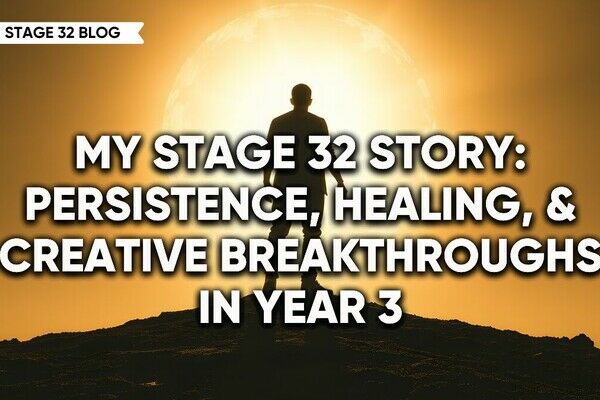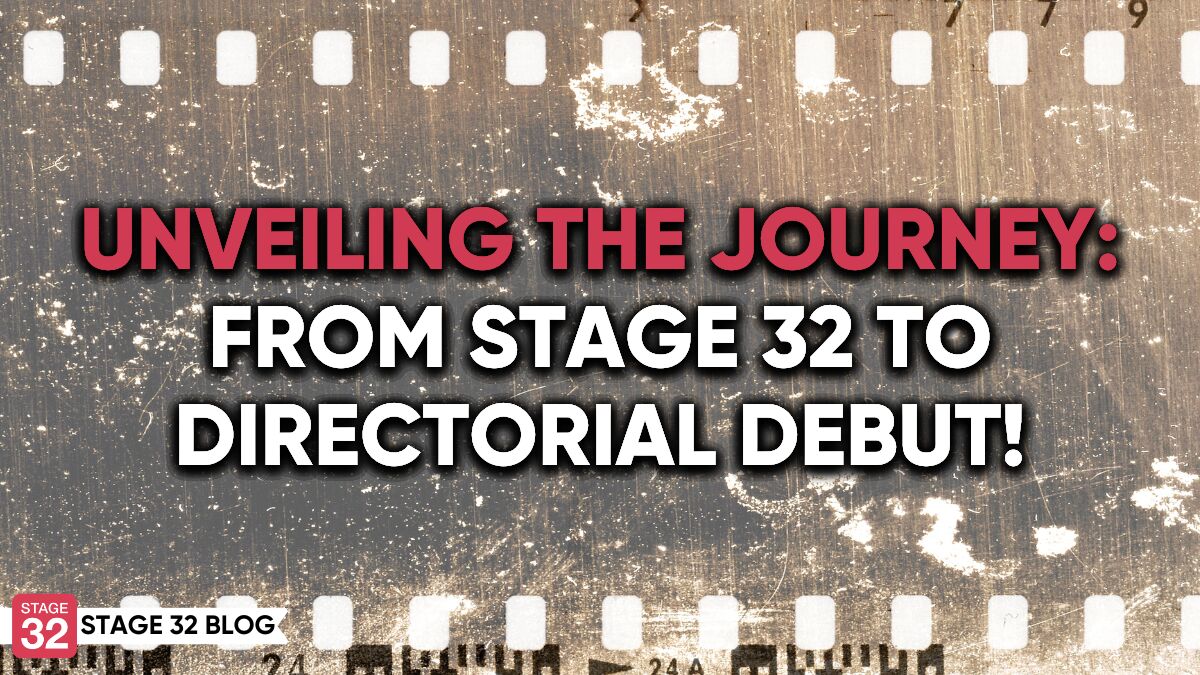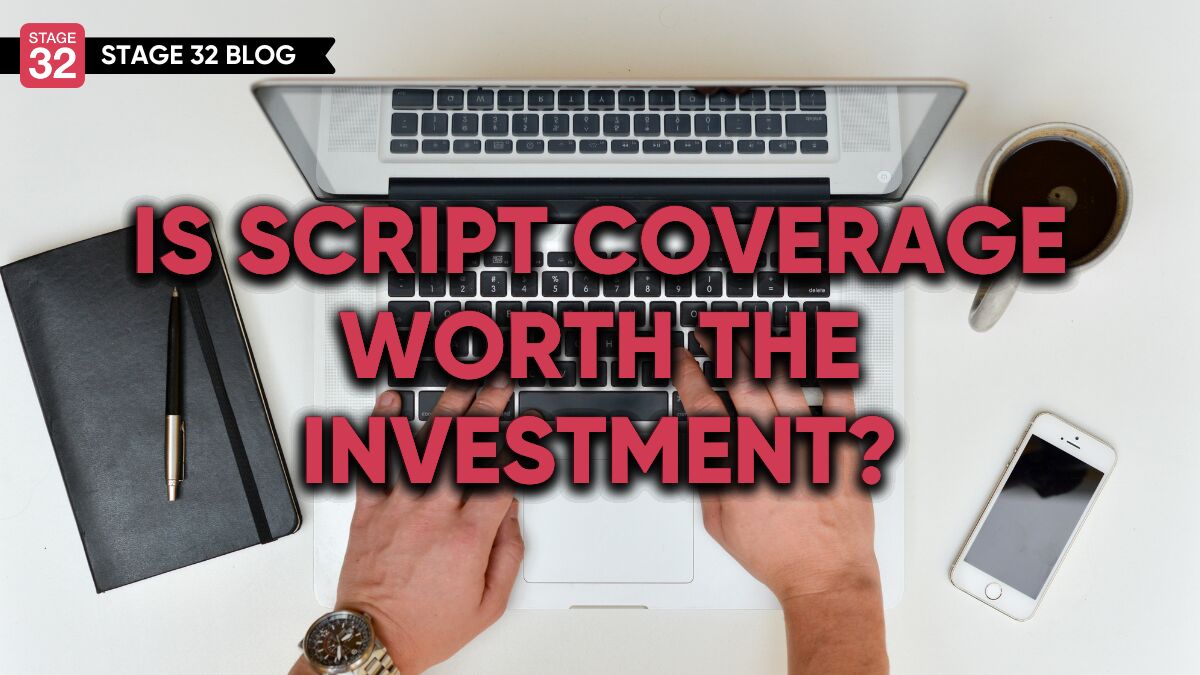Is Script Coverage Worth The Investment?
Screenwriters face a common dilemma when it comes to getting script coverage - is it worth the investment? With worries and doubts clouding their minds, many are torn and upset, unsure of whether to spend their hard-earned money on this service. However, there is a solution to ease their concerns and shed light on the value of script coverage. By understanding the different phases of coverage, screenwriters can gain the knowledge and power to make an informed decision.
In this blog, we will take a closer look at the four phases of script coverage, ensuring that screenwriters have a clear understanding of what they are paying for and the potential benefits it can bring to their scripts.

The Dilemma Of Script Coverage
Is Script Coverage Just An Expensive Fancy?
Many screenwriters question if script coverage is simply a luxury they can do without. The concern is valid: when funds are limited, every expense must be justified.
Script coverage, however, is not about lavishness but about professional growth and strategic investment. Imagine script coverage as a compass for a ship in uncharted waters. It offers guidance on where your script stands in a sea of countless others and highlights the direction in which to steer your story for a better chance of success.
The value is in the feedback, which has the potential to transform a script from good to exceptional. It’s about gaining a competitive edge in an industry where the difference between a script that gets picked up and one that doesn't may come down to the insights and polish that only a professional review can provide.
The Myth VS Reality Of Screenplay Coverage
The myth suggests that screenplay coverage is an inside game, a gatekeeper's tool with little to no real benefit for the writer. This myth persists due to a lack of understanding about what coverage actually entails.
In reality, coverage is a critical analysis, often provided by industry professionals who understand what makes a screenplay marketable and successful. These insights are not just opinions but are grounded in industry trends and standards. Coverage gives writers a rare opportunity to see their work through the lens of someone who knows what producers and studios are looking for. It's a reality check that can confirm a script’s strengths and uncover weaknesses that a writer, no matter how skilled, might overlook. Debunking the myth is about recognizing the tangible benefits that come from an informed review, which goes far beyond what friends or colleagues might offer in casual feedback.

Phase One: Getting Your Foot In The Door
How Script Coverage Helps In Recognition
Script coverage serves as a bridge between the solitary act of writing and the collaborative process of filmmaking. For many writers, it's the first form of validation from someone within the industry. A strong coverage report can help a script stand out, allowing it to be recognized by agents, producers, and studio executives. Think of it as a professional endorsement; it signals that a script is not only complete but has been evaluated and deemed worthy of consideration.
The feedback from coverage can highlight a writer's unique voice and storytelling abilities, distinguishing the script in a crowded marketplace. Moreover, coverage often includes a logline and synopsis that can be used to catch an industry professional's attention, making it a practical tool for navigating the initial stages of getting a script noticed.
The Cost-Benefit Analysis: Worth Your Investment?
When considering script coverage, screenwriters must weigh the costs against the potential benefits. It's a financial decision, yes, but it's also an investment in one's craft. The immediate cost of coverage may seem daunting, but the benefits — a refined script, a deeper understanding of industry expectations, and improved chances of selling your screenplay — can far outweigh the initial expense. Coverage can provide a roadmap for revisions that elevate your script from amateur to professional grade.
Additionally, the feedback can save you from the greater cost of submitting an underdeveloped screenplay that fails to make an impression. When you factor in the competitive nature of the industry and the limited opportunities to make a first impression, the question becomes not whether you can afford script coverage, but whether you can afford to bypass the advantages it offers. It’s about investing in your future as a screenwriter.

Phase Two: Analysis, Consultation, & Recommendation Of Your Script
What Is Analysis & How Does It Help The Screenwriter?
Script analysis is the beating heart of the coverage process. This phase is where the script is dissected and digested down to its most intricate threads, revealing its strengths and weaknesses.
It's an in-depth evaluation of the script's structure, themes, characters, dialogue, pacing, and overall market potential. Imagine script analysis as a surgeon’s meticulous operation. It involves a step-by-step examination of your script, much like a surgeon would examine a patient. The surgeon looks at the whole body, just as the script analyst looks at the complete script. But they also look closer, examining individual organs—or in the case of a script, individual scenes, lines, or characters—to understand their function, their health, and their interconnections.
Their goal? To find what’s working well and what needs attention or improvement. The process of script analysis can be incredibly enlightening for new screenwriters. Have you ever gotten so close to your work that you lose perspective? Script analysis provides a fresh, professional perspective that can illuminate hidden issues or reinforce the strengths already present in your script.
By observing your script through a different lens, you gain a more holistic understanding of your work and its place in the wider storytelling landscape. You learn where your narrative thrills and where it falls flat, where your characters captivate, and where they leave readers indifferent. You see your plot's momentum, its high and low points, its twists and turns — as mapped by someone other than yourself. Moreover, the script analysis in coverage equips you with actionable insights.
It’s one thing to know your script has weaknesses – it's another to understand precisely what they are and how to address them. Does your main character lack depth? The analysis might suggest ways to enrich their backstory. Is your pacing too slow? The analysis could offer strategies to increase tension and maintain audience interest.
In essence, script analysis is more than just a critique; it's a roadmap to refining your narrative, polishing your storytelling skills, and enhancing the overall quality of your script. It's about bridging the gap between your vision and its execution, steering you towards a script that not only lives up to your imagination but also satisfies the expectations of industry professionals.
For new screenwriters, script analysis is an opportunity to grow and learn. It's a chance to view your work with critical eyes, accept constructive feedback, and use that feedback to improve your craft. Just like the compass for the ship, it points you in the right direction and helps you navigate the turbulent waters of screenwriting toward the shores of success.
Indeed, script analysis is not so much a service as it is an education, a vital step in the journey of becoming a skilled, knowledgeable, and confident screenwriter. It's about embracing the journey, the process, the learning – because only in doing so can we truly master our craft and tell stories that resonate, engage, and leave a lasting impact.
What Is Consultation & How Does It Help The Screenwriter?
After script analysis, the consultation phase puts all those insights into perspective and offers tailored advice to help screenwriters enhance their craft and their scripts.
Think of consultation as a personalized coaching session.
It takes the broad strokes of analysis and zooms in, offering specific suggestions based on the strengths and weaknesses identified in your script. There’s immense value in getting professional feedback, but the real magic happens when that feedback is discussed, dissected, and applied in a meaningful way. That’s where consultation comes in.
Consultation helps new screenwriters in numerous ways:
- Guidance: As novice writers, it's common to feel overwhelmed by the feedback and unsure about the next steps. Consultation provides clear, specific guidance on how to approach revisions and what areas to focus on. You're no longer wandering in the dark. Instead, you're given a torch to light the way.
- Personalized advice: Every script is unique. Therefore, ‘one-size-fits-all’ solutions don't work. Consultation offers advice tailored specifically to your script, your characters, and your unique narrative. This personalized approach helps in honing your script more effectively.
- Clarification: Screenwriting concepts and techniques can be complex. If there's feedback you don't understand or if you're struggling to grasp certain aspects of screenwriting, consultation offers the opportunity to ask questions and gain a more in-depth understanding.
- Skill building: Moreover, consultation goes beyond your current script. It's a learning opportunity to enhance your overall screenwriting skills. You learn not just what changes to make, but also why they're needed and how they align with professional screenwriting standards. The insights gained here can be applied to all your future scripts.
- Motivation and encouragement: Screenwriting can be a solitary and tough journey. A consultant serves as a mentor, boosting your morale, helping you overcome doubts, and encouraging you to keep going despite the hurdles. They're your cheerleader, reminding you of your potential and keeping your spirits high.
In essence, consultation functions as a compass guiding you through the challenging terrain of script rewriting. It's an instrumental phase in transforming your script from a raw diamond to a polished gem.
What Is Script Grading & How Does A Recommendation Help The Screenwriter?
Script grading, or script scoring, forms the final phase in the script coverage process. This phase involves assigning a grade or score to various elements of your script, such as premise, dialogue, character development, structure, and market potential. You can look at script grading as a teacher grading your paper - it’s a quantifiable measure of the strength of your script.
But why do numbers matter when it comes to storytelling? Well, just as grades do in school, scores in script grading serve as an objective benchmark. They help you gauge where you stand in comparison to industry standards. A high score signals that your script has reached a professional level of quality and is ready for the big leagues. On the other hand, a low score offers a clear indication that your script requires further development. The grading process also serves to stress-test your script against essential ‘industry must-haves.’
Are your characters well-fleshed out and relatable? Does your plot structure abide by the widely accepted three-act paradigm? Is the dialogue authentic and does it drive the story forward?
Gradings reflect how well your script meets these critical parameters. For new screenwriters, script grading can feel like a judgment – but it's more helpful to consider it as a diagnostic. It pinpoints the areas in your script that need attention, helping you focus your revision efforts where they're needed most.
Recommendations, on the other hand, are all about potential. A script recommendation is akin to a stamp of approval from the industry professional who reviewed your script. A recommendation implies that your script is ready to hit the market and would be a worthy contender for agents, producers, or studio executives to consider. A recommendation doesn’t just praise your script; it actively promotes it.
It's like a friend urging you to read a fantastic book they've just finished - they believe in the substance and are confident that you will appreciate it too. Similarly, when your script receives a recommendation, it means that its strengths have resonated with the reviewer and they believe it could have the same impact on other industry professionals. For new screenwriters, earning a recommendation can do wonders for their confidence. Seeing that a professional has faith in your script – enough to recommend it – can infuse you with a renewed sense of purpose and motivation. It affirms that you're on the right track and encourages you to push forward, despite any challenges or setbacks. Moreover, a recommendation can significantly increase your script’s visibility in the marketplace, making it more likely to catch the attention of those who can turn your screenplay into a film.
In conclusion, script grading and recommendations are vital cogs in the wheel of script coverage. They provide a quantifiable assessment of your script's strengths and weaknesses, offering an objective point of view that sheds light on your script's potential. Whether it's guiding your revision efforts or boosting your script's visibility, script grading and recommendations undoubtedly play a crucial role in helping new screenwriters carve their path in the world of screenwriting.

Phase Three: The Benefits of Script Coverage
The Nitty-Gritty Of Script Coverage
Script coverage is more than just a summary of your screenplay; it's a comprehensive critique that delves into every aspect of your writing. The analysis typically covers plot structure, character development, dialogue, pace, and genre-specific elements. Coverage providers assess the script's marketability, its potential audience, and how it stacks up against current industry trends. They also look at the screenplay's potential for adaptation into other media forms, such as television or even a novel.
This level of detail provides writers with a granular view of their work, pinpointing exactly what is working and what isn't. It's the kind of feedback that can be hard to come by elsewhere and is invaluable for writers aiming to perfect their craft. The nitty-gritty of script coverage equips writers with the specific, actionable advice they need to make informed revisions.
Translating Coverage To Script Improvement
The crux of script coverage is not just to critique but to foster script improvement. Screenwriters can use detailed feedback to refine their stories, ensuring each scene, character arc, and line of dialogue serves the script's overall purpose. It's about translating criticism into creative fuel; each piece of coverage provides a stepping stone toward a more polished draft.
This is the phase where writers must be open to change and ready to challenge their work. By embracing an objective perspective, they gain the clarity needed to cut what's unnecessary and enhance what shines. Practical advice from coverage can lead to stronger openings, more engaging plot points, and more memorable characters.
Ultimately, it's the thoughtful application of this feedback that can turn a good script into a great one, significantly increasing the likelihood of it catching the eye of those who have the power to bring it to life.

Phase Four: Post-Coverage Strategies
How To Use Script Coverage To Get Sold
After receiving script coverage, the next step is leveraging it to sell your screenplay. It's not just about having a polished script; it's about understanding how to present it. The insights gained from coverage can inform your pitch, making it more compelling to agents and producers. Use the positive aspects highlighted in the coverage to sell the strengths of your script, and address any weaknesses by showing how you've used the feedback to improve the work.
Coverage can also help you tailor your script to fit current market demands or even identify the right target audience or production company for your genre. It’s a tool for strategic positioning in a competitive market. Demonstrating that you have taken professional feedback seriously shows potential buyers that you are committed to excellence and open to collaboration, which are key qualities in the industry.
Leveraging Feedback For Greater Rewards
Constructive feedback from script coverage is a goldmine for screenwriters seeking to elevate their work and increase its marketability. This phase is about using the feedback strategically to reap greater rewards. Consider each piece of advice as a potential key to unlocking new doors in your script's journey from page to screen. It's about fine-tuning your screenplay based on the critique to make it more appealing to those who make the decisions.
If coverage highlights a standout character or a highly original plot twist, these can become selling points when pitching your script. Also, by demonstrating a willingness to revise and improve your screenplay, you show industry professionals that you're a serious writer who values their craft and is easy to work with. This reputation can open up opportunities beyond the current script, establishing relationships that could benefit your career for years to come. Leveraging feedback effectively can thus lead to greater rewards than you might initially imagine.

Conclusion: Empowerment Through Understanding
Shattering Doubts: The Final Verdict On Script Coverage
In the end, the doubts surrounding script coverage can be shattered by understanding its true function and potential impact on a screenwriter's career. Coverage is not just an expense; it's an investment in the betterment of your script and your skills as a writer. The final verdict is that script coverage is indeed worth the investment for those who are serious about pursuing a career in screenwriting.
It provides an invaluable perspective that can save time and heartache by pointing out issues before they become roadblocks to success. When used correctly, the insights gained from coverage can propel a screenplay from the slush pile to the shortlist. By giving you the tools to improve your work and make it resonate with industry professionals, script coverage ultimately empowers you to transform your screenplay into the best possible version of itself.
Embracing Coverage As A Screenwriter's Powerful Ally
Understanding the value of script coverage is akin to recognizing a mentor who guides you toward your goals. It's a powerful ally for screenwriters, one that provides clear, actionable feedback and a path to professional refinement. Embracing coverage means embracing growth, and challenging oneself to push beyond creative boundaries and industry standards. It’s about aligning your vision with the practical demands of the market, ensuring your script not only tells a compelling story but does so in a way that resonates with audiences and decision-makers alike.
Coverage doesn't guarantee success, but it equips you with the knowledge and feedback necessary to improve your chances significantly. By accepting and utilizing this tool, you set the stage for a stronger screenplay and a more robust career. In this light, script coverage isn’t just helpful; it’s indispensable.
Let's hear your thoughts in the comments below!
Got an idea for a post? Or have you collaborated with Stage 32 members to create a project? We'd love to hear about it. Email Emily at blog@stage32.com and let's get your post published!
Please help support your fellow Stage 32ers by sharing this on social. Check out the social media buttons at the top to share on Instagram @stage32 Twitter @stage32 Facebook @stage32 and LinkedIn @stage-32
| How To Present Yourself Online To Book Jobs In The Entertainment Industry |
| Unveiling The Journey: From Stage 32 To Directorial Debut! |
Search Stage 32 Blog
There are now 4040 blog posts for you to enjoy. Search them all by tags below.
Acting, Advice, Cinematography, Coffee & Content, Composing, Contests, Distribution, Featured, Filmmaking, Financing, Inspirational, Networking, Producing, Screenwriting, Success Stories, Tips, Trending,Relevant Tags
Recommended Articles

Insider Intel: Packaging your Project- The Chicken or the Egg Dilemma

My Stage 32 Story: Persistence, Healing, & Creative Breakthroughs in Year 3

How Stage 32 Script Services Make You A Better Writer

Coffee & Content: Why Your Next Step Matters More Than the Perfect Step

Coffee & Content: Why Your Pitch Needs to Be Human

Wearing Many Hats As A Creative

What Stage 32's Community Is Really About (Beyond Scripts, Sets, and Showreels)

Forbes Spotlights Stage 32 Certification!

4 Reasons To Have Audio Description On Your Film








